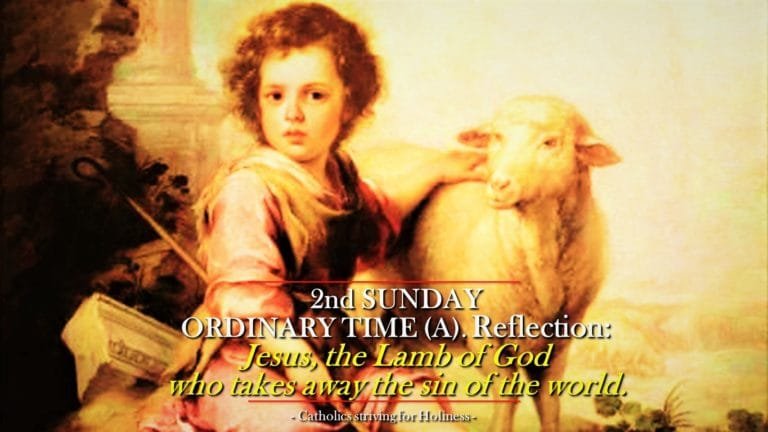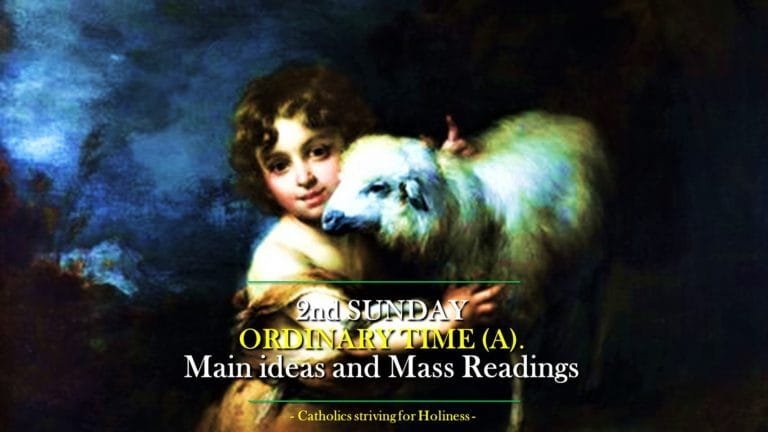POPE FRANCIS ON THE 2ND SUNDAY IN ORDINARY TIME YEAR A
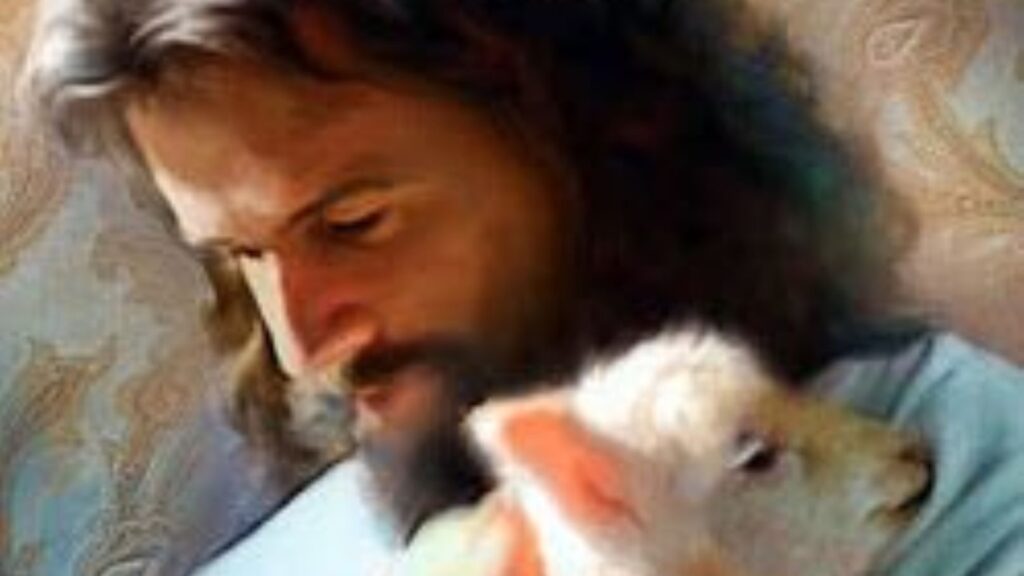
ANGELUS
Saint Peter’s Square
2ND SUNDAY IN ORDINARY TIME YEAR A, 15 January 2023
_________________________
Dear brothers and sisters, happy Sunday!
The Gospel of today’s liturgy (cf. Jn 1:29-34) relates the testimony of John the Baptist on Jesus, after having baptized him in the river Jordan. He says: “After me comes a man who ranks before me, for he was before me” (vv. 29-30).
This declaration, this witness, reveals John’s spirit of service. He was sent to prepare the way for the Messiah, and had done so without sparing himself. Humanly speaking, one would think that he would be given a “prize”, a prominent place in Jesus’ public life. But no. John, having accomplished his mission, knows how to step aside, he withdraws from the scene to make way for Jesus. He has seen the Spirit descend upon him (cf. vv. 33-34), he has indicated him as the Lamb of God who takes away the sin of the world, and now he in turn humbly listens. He goes from prophet to disciple. He preached to the people, gathered disciples and trained them for a long time. Yet he does not bind anyone to himself. And this is difficult, but it is the sign of the true educator: not binding people to himself. John does this: he sets his disciples in Jesus’ footsteps. He is not interested in having a following for himself, in gaining prestige and success, but he bears witness and then takes a step back, so that many would have the joy of meeting Jesus. We can say: he opens the door, then he leaves.
With this spirit of service, with his capacity to give way to Jesus, John the Baptist teaches us an important thing: freedom from attachments. Yes, because it is easy to become attached to roles and positions, to the need to be esteemed, recognized and rewarded. And this, although natural, is not a good thing, because service involves gratuitousness, taking care of others without benefit for oneself, without ulterior motives, without expecting something in return. It is good for us, too, to cultivate, like John, the virtue of setting ourselves aside at the right moment, bearing witness that the point of reference of life is Jesus. To step aside, to learn to take one’s leave: I have completed this mission, I have had this meeting, I will step aside and leave room to the Lord. To learn to step aside, not to take something for ourselves in recompense.
Let us think of how important this is for a priest, who is required to preach and celebrate, not out of self-importance or interest, but to accompany others to Jesus. Think of how important this is for parents, to raise their children with many sacrifices, but then they have to leave them free to take their own path in work, in marriage, in life. It is good and right that parents continue to assure their presence, saying to their children, “We will not leave you by yourselves”, but with discretion, without intrusiveness. The freedom to grow. And the same applies to other spheres, such as friendships, life as a couple, community life. Freeing oneself from attachments to one’s own ego and knowing how to step aside come at a cost, but are very important: this is the decisive step in order to grow in the spirit of service, without looking for something in return.
Brothers, sisters, let is try to ask ourselves: are we capable of making space for others? Of listening to them, of leaving them free, of not binding them to ourselves, demanding recognition? And also, of letting them speak, at times. Do not say, “But you know nothing!”. Let them speak, make space for others. Do we attract others to Jesus, or to ourselves? And furthermore, following the example of John: do we know how to rejoice in the fact that people take their own path and follow their calling, even if this entails some detachment from us? Do we rejoice in their achievements, with sincerity and without envy? This is letting others grow.
May Mary, the servant of the Lord, help us to be free from attachments, to make way for the Lord and to give space to others.
Source: https://www.vatican.va/content/francesco/en/angelus/2023/documents/20230115-angelus.html
HOMILY OF POPE FRANCIS
2ND SUNDAY IN ORDINARY TIME YEAR A,
19 January 2014
This passage from the Gospel is beautiful. John was baptizing; and Jesus, who had been baptized prior to this — some days before — was coming towards him and came before John. And John felt the power of the Holy Spirit within him to bear witness to Jesus. Looking at him, and looking at the people around Him, he said: “Behold, the Lamb of God, who takes away the sin of the world”. And he bore witness to Jesus: this is Jesus, this is the One who has come to save us; this is the One who will give us the power of hope.
Jesus is called the Lamb: He is the Lamb who takes away the sin of the world. Someone might think: but how can a lamb, which is so weak, a weak little lamb, how can it take away so many sins, so much wickedness? With Love. With his meekness. Jesus never ceased being a lamb: meek, good, full of love, close to the little ones, close to the poor. He was there, among the people, healing everyone, teaching, praying. Jesus, so weak, like a lamb. However, he had the strength to take all our sins upon himself, all of them. “But, Father, you don’t know my life: I have a sin that…, I can’t even carry it with a truck…”. Many times, when we examine our conscience, we find some there that are truly bad! But he carries them. He came for this: to forgive, to make peace in the world, but first in the heart. Perhaps each one of us feels troubled in his heart, perhaps he experiences darkness in his heart, perhaps he feels a little sad over a fault…. He has come to take away all of this, He gives us peace, he forgives everything. “Behold, the Lamb of God, who takes away sin”: he takes away sin, it’s root and all! This is salvation Jesus brings about by his love and his meekness. And in listening to what John the Baptist says, who bears witness to Jesus as the Saviour, our confidence in Jesus should grow. Many times we trust a doctor: it is good, because the doctor is there to cure us; we trust in a person: brothers and sisters can help us. It is good to have this human trust among ourselves. But we forget about trust in the Lord: this is the key to success in life. Trust in the Lord, let us trust in the Lord! “Lord, look at my life: I’m in the dark, I have this struggle, I have this sin…”; everything we have: “Look at this: I trust in you!”. And this is a risk we must take: to trust in Him, and He never disappoints. Never, never! Listen carefully, young people, who are just beginning life now: Jesus never disappoints. Never. This is the testimony of John: Jesus, the good One, the meek One, will end as a lamb, who is slain. Without crying out. He came to save us, to take away sin. Mine, yours and that of the whole world: all of it, all of it.
And now I invite you to do something: let us close our eyes, let us imagine the scene on the banks of the river, John as he is baptizing and Jesus who is approaching. And let us listen to John’s voice: “Behold, the Lamb of God, who takes away the sin of the world”. Let us watch Jesus and in silence, each one of us, say something to Jesus from his heart. In silence. (Pause for silence).
May the Lord Jesus, who is meek, who is good — he is a lamb — who came to take away sin, accompany us on the path of our life. So be it.
HOMILY OF HIS HOLINESS POPE FRANCIS
2ND SUNDAY IN ORDINARY TIME YEAR A, 15 January 2017

The Gospel presents us John at the moment in which he bears witness to Jesus. Seeing Jesus come toward him, he says: “Behold, the Lamb of God, who takes away the sin of the world! This is he of whom I said, ‘After me comes a man who ranks before me’” (Jn 1:29-30). This is the Messiah. He bears witness. And several disciples, upon hearing this testimony — John’s disciples — follow Jesus: they go after Him and are happy: “We have found the Messiah” (Jn 1:41). They felt Jesus’ presence. But why did they encounter Jesus? Because there was a witness; because there was a man who bore witness to Jesus.
This is how it happens in our life. There are many Christians who profess that Jesus is God; there are many priests who profess that Jesus is God, many bishops…. But does everyone bear witness to Jesus? Or is being Christian … a way of life like another, like being the fan of a team? ‘Yes, I’m a Christian…’. Or having a philosophy: ‘I follow these commandments, I’m a Christian, I must do this…’. Being Christian, first of all, is bearing witness to Jesus. The first thing. This is what the Apostles did: the Apostles bore witness to Jesus, and because of this, Christianity spread throughout the world. Witness and martyrdom: the same thing. One bears witness in small ways, and some reach greatness, giving their life in martyrdom, like the Apostles. But the Apostles did not take a course to become witnesses to Jesus; they did not study, they did not go to university. They felt the Spirit within and followed the inspiration of the Spirit; they were faithful to this. But they were sinners, all! The Twelve were sinners. ‘No, Father, only Judas!’. No, poor man…. We do not know what happened after his death, because there is also God’s mercy at that moment. But all were sinners, every one. Envious, they had jealousy among them: ‘No, I must have the first place, and you the second’; and two of them spoke to their mother so she went to ask Jesus to give the first place to her sons…. They were like this, with all their sins. They were also traitors, because when Jesus was captured, they all fled, full of fear; they hid: they were frightened. And Peter, who knew he was in charge, felt the need to come a little closer to see what was happening; and when the priest’s housekeeper said: ‘You too were…’, he said: ‘No, no, no!’. He denied Jesus; he betrayed Jesus. Peter! The first Pope. He betrayed Jesus. These are witnesses! Yes, because they were witnesses of the salvation that Jesus brings, and everyone converted for this salvation, they let themselves be saved. It is beautiful when, on the riverbank, Jesus performed that miracle [the miraculous catch of fish] and Peter says: “Depart from me, for I am a sinful man, O Lord” (Lk 5:8). Being a witness does not mean being a saint, but being a poor man, a poor woman who says: ‘Yes, I am a sinner, but Jesus is the Lord and I bear witness to him, and I seek to do good every day, to correct my life, to take the right path’.
I would only like to leave you a message. We all understand this, what I have said: sinful witnesses. But, reading the Gospel, I do not find one [certain type of] sin in the Apostles. There were some brutes, who wanted to burn down a village that had not welcomed them…. They had many sins: traitors, cowards…. But I do not find one [in particular]: they were not gossipmongers; they did not speak ill of others, they did not speak badly of one another. In this they were good. They did not ‘rip off others’. I think of our communities: how many times this sin of ‘flaying one another’, of disparaging, of believing oneself superior to another and secretly speaking ill! In the Gospel, they did not do this. They did terrible things; they betrayed the Lord, but did not do this. Even in one parish, in one community who knows where … this one cheated, this one did that…, but then they confess, they convert…. We are all sinners. But a community where there are gossipmongers is a community that is incapable of bearing witness.
I will say only this: do you want a perfect parish? No gossiping. None. If you have something against another, go and say it to his face, or tell the parish priest; but not among yourselves. This is a sign that the Holy Spirit is in a parish. Other sins, we all have them. There is a collection of sins: one takes this, one takes that, but we are all sinners. But like a woodworm, what destroys a community is gossip, behind others’ backs.
I would like this community, on this day of my visit, to make the resolution not to gossip. When you have the desire to gossip, bite your tongue: it will swell, but it will do you so much good, because in the Gospel these witnesses to Jesus — sinners: they even betrayed the Lord! — they never gossiped about one another. This is beautiful. A parish where there is no gossip is a perfect parish; it is a parish of sinners, yes, but of witnesses. This is the witness that the first Christians bore: ‘As they love each other, as they love each other!’. Love each other at least in this. May the Lord give you this gift, this grace: never, never speak ill of one another. Thank you.
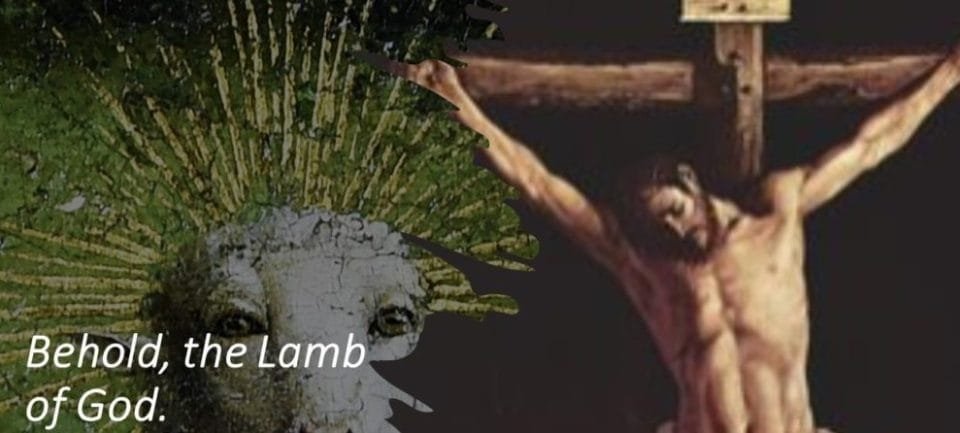
POPE FRANCIS
ANGELUS
Saint Peter’s Square
Sunday, 19 January 2020
Dear brothers and sisters, good morning!
This second Sunday of Ordinary Time is in continuity with the Epiphany and the Feast of the Baptism of Jesus. The Gospel passage (cf. Jn 1: 29-34) again speaks to us of the manifestation of Jesus. Indeed, after being baptized in the River Jordan, He was consecrated by the Holy Spirit Who came upon Him, and was proclaimed Son of God by the voice of the heavenly Father (cf. Mt 3: 16-17 et seq.). The Evangelist John, unlike the other three, does not describe the event, but proposes to us the witness of John the Baptist. He was the first witness of Christ. God had called him and prepared him for this.
The Baptist cannot hold back the urgent desire to bear witness to Jesus and declares: “I have seen and have borne witness” (v. 34). John saw something shocking, that is, the beloved Son of God in solidarity with sinners; and the Holy Spirit made him understand this unheard-of novelty, a true reversal. In fact, while in all religions it is man who offers and sacrifices something to God, in the event Jesus is God Who offers His Son for the salvation of humanity. John manifests his astonishment and his consent to this newness brought by Jesus, through a meaningful expression that we repeat each time in the Mass: “Behold the Lamb of God, Who takes away the sin of the world!” (v. 29).
The testimony of John the Baptist invites us to start out again and again on our journey of faith: to start afresh from Jesus Christ, the Lamb full of mercy that the Father gave for us. Let us be surprised once again by God’s choice to be on our side, to show solidarity with us sinners, and to save the world from evil by taking it on fully.
Let us learn from John the Baptist not to assume that we already know Jesus, that we already know everything about Him (cf. v. 31). This is not so. Let us pause with the Gospel, perhaps even contemplating an icon of Christ, a “Holy face”. Let us contemplate with our eyes and yet more with our hearts; and let us allow ourselves to be instructed by the Holy Spirit, Who tells us inside: It is He! He is the Son of God made lamb, immolated out of love. He alone has brought, He alone has suffered, He alone has atoned for sin, the sin of each one of us, the sin of the world, and also my sins. All of them. He brought them all upon Himself and took them away from us, so that we would finally be free, no longer slaves to evil. Yes, we are still poor sinners, but not slaves, no, not slaves: children, children of God!
May the Virgin Mary obtain for us the strength to bear witness to her Son Jesus; to proclaim Him with joy with a life freed from evil and a word full of astonished and grateful faith.
ANGELUS
Saint Peter’s Square
2ND SUNDAY IN ORDINARY TIME YEAR A, 15 January 2017
Dear Brothers and Sisters, Good morning!
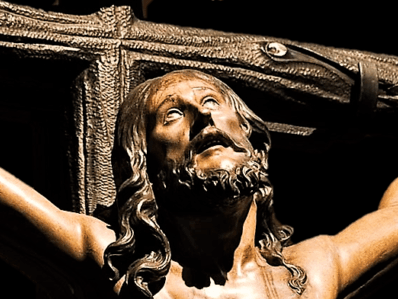
At the centre of today’s Gospel reading (Jn 1:29-34) there is this message of John the Baptist: “Behold, the Lamb of God, who takes away the sin of the world!” (v. 29). It is a message accompanied by the gaze and the hand gesture that indicate Him, Jesus.
Let us imagine the scene. We are on the bank of the River Jordan. John is baptizing; there are many people, men and women of various ages, who have come there, to the river, to receive baptism from the hands of the man who reminded many of Elijah, the great Prophet who nine centuries before had purified the Israelites of idolatry and led them back to the true faith in the God of the Covenant, the God of Abraham, Isaac and Jacob.
John preaches that the Kingdom of Heaven is at hand, that the Messiah is about to reveal himself, and one must prepare, convert and act with righteousness; and he begins to baptize in the River Jordan in order to give the people a tangible means of repentance (cf. Mt 3:1-6). These people came to repent their sins, to make penance, to begin their life anew. He knows; John knows that the Messiah, the Lord’s Consecrated One, is now nearby, and the sign to recognize Him will be that the Holy Spirit will descend upon Him. Indeed, He will bring the true baptism, baptism in the Holy Spirit (cf. Jn 1:33).
And thus, the moment arrives: Jesus appears on the river bank, in the midst of the people, the sinners — like all of us. It is his first public act, the first thing he does when he leaves his home in Nazareth, at the age of 30: he goes down into Judea, goes to the Jordan, and is baptized by John. We know what happens. We celebrated it last Sunday: the Holy Spirit descends upon Jesus in the form of a dove and the voice of the Father proclaims him the beloved Son (cf. Mt 3:16-17). It is the sign that John has been waiting for. It is He! Jesus is the Messiah. John is disconcerted, because He manifests himself in an unimaginable way: in the midst of sinners, baptized with them, or rather, for them. But the Spirit enlightens John and helps him understand that in this way God’s justice is fulfilled, his plan of salvation is fulfilled: Jesus is the Messiah, the King of Israel, however, not with the power of this world but as the Lamb of God, who takes upon himself and takes away the sins of the world.
Thus, John points Him out to the people and to his disciples. Because John had a large circle of disciples, who had chosen him as a spiritual guide, and some of them actually become the first disciples of Jesus. We know their names well: Simon, later called Peter, his brother Andrew, James and his brother John. All were fishermen, all Galileans, like Jesus.
Dear brothers and sisters, why have we focused so long on this scene? Because it is decisive! It is not an anecdote. It is a decisive historical fact! This scene is decisive for our faith; and it is also decisive for the Church’s mission. The Church, in every time, is called to do what John the Baptist did: point Jesus out to the people, saying, “Behold, the Lamb of God, who takes away the sin of the world!”. He is the One Saviour! He is the Lord, humble, in the midst of sinners, but it is He, He: there is no other powerful one who comes; no, no it is He!
These are the words that we priests repeat each day, during the Mass, when we present to the people the bread and wine become the Body and Blood of Christ. This liturgical gesture represents the whole mission of the Church, which she does not proclaim herself. Woe, woe when the Church proclaims herself; she loses her bearings, she doesn’t know where she is going! The Church proclaims Christ; she does not bring herself, she brings Christ. Because it is He and only He who saves his people from sin, frees them and guides them to land and to true freedom.
May the Virgin Mary, Mother of the Lamb of God, help us to believe in Him and follow Him.
ANGELUS
Saint Peter’s Square
2ND SUNDAY IN ORDINARY TIME YEAR A, 19 January 2014
Dear Brothers and Sisters, Good morning!
With the Feast of the Baptism of the Lord, which was celebrated last Sunday, we entered in the liturgical season called “ordinary” time. On this Second Sunday, the Gospel presents us with the scene of the encounter between Jesus and John the Baptist at the River Jordan. The one who recounts it is the eyewitness, John the Evangelist, who before becoming a disciple of Jesus, was a disciple of the Baptist, together with his brother James, with Simon and Andrew, all from Galilee, all fishermen.
The Baptist then sees Jesus who is approaching amid the crowd and, inspired from on High, he recognizes in him the One sent by God; he therefore points him out with these words: “Behold, the Lamb of God, who takes away the sin of the world!” (Jn 1:29).
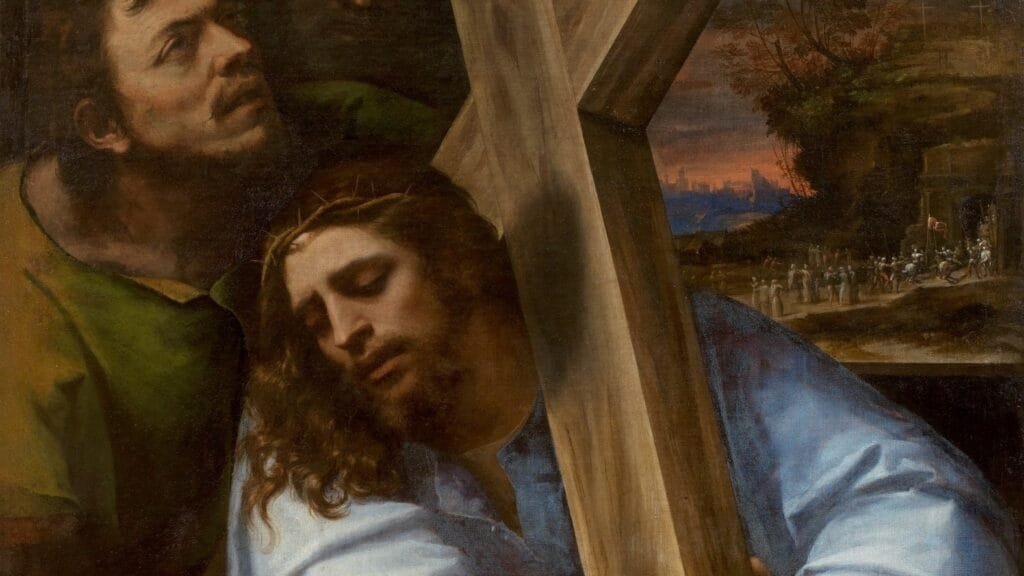
The verb that is translated as “take away” literally means “to lift up”, “to take upon oneself”. Jesus came into the world with a precise mission: to liberate it from the slavery of sin by taking on himself the sins of mankind. How? By loving. There is no other way to conquer evil and sin than by the love that leads to giving up one’s life for others. In the testimony of John the Baptist, Jesus assumes the features of the the Lord’s Suffering Servant, who “has borne our grief and carried our sorrows” (Is 53:4) unto death on the Cross. He is the true Paschal Lamb, who immerses himself in the river of our sin in order to purify us.
The Baptist sees before him a man who stands in line with sinners to be baptized, though he had no need of it. A man whom God sent into the world as a Lamb to be immolated. In the New Testament, the word “lamb” recurs many times and always in reference to Jesus. This image of the lamb might be surprising; indeed, an animal that is certainly not characterized by strength and robustness takes upon its shoulders such an oppressive weight. The huge mass of evil is removed and taken away by a weak and fragile creature, a symbol of obedience, docility and defenseless love that ultimately offers itself in sacrifice. The lamb is not a ruler but docile, it is not aggressive but peaceful; it shows no claws or teeth in the face of any attack; rather, it bears it and is submissive. And so is Jesus! So is Jesus, like a lamb.
What does it mean for the Church, for us today, to be disciples of Jesus, the Lamb of God? It means replacing malice with innocence, replacing power with love, replacing pride with humility, replacing status with service. It is good work! We Christians must do this: replace malice with innocence, replace power with love, replace pride with humility, replace status with service. Being disciples of the Lamb means not living like a “besieged citadel”, but like a city placed on a hill, open, welcoming and supportive. It means not assuming closed attitudes but rather proposing the Gospel to everyone, bearing witness by our lives that following Jesus makes us freer and more joyous.
Copyright © Dicastero per la Comunicazione – Libreria Editrice Vaticana
See as well:
Stay updated: subscribe by email for free TO OUR NEW WEBSITE www.catholicsstrivingforholiness.org (PUT YOUR EMAIL IN THE SUBSCRIBE WIDGET).
We are also in www.fb.com/Catholicsstrivingforholiness. Kindly help more people in their Christian life by liking our page and inviting your family, friends and relatives to do so as well. Thanks in advance and God bless you and your loved ones! Fr. Rolly Arjonillo
